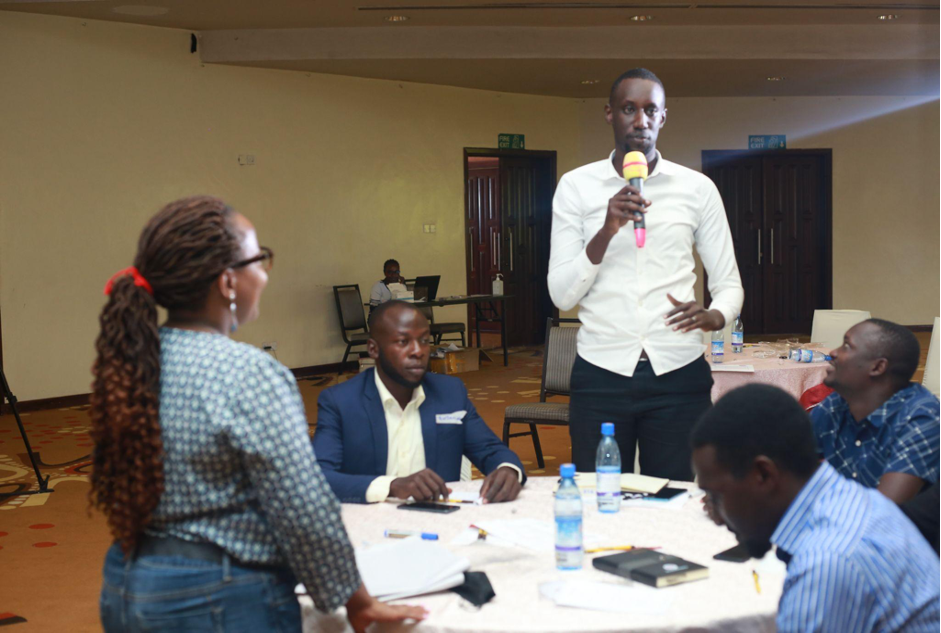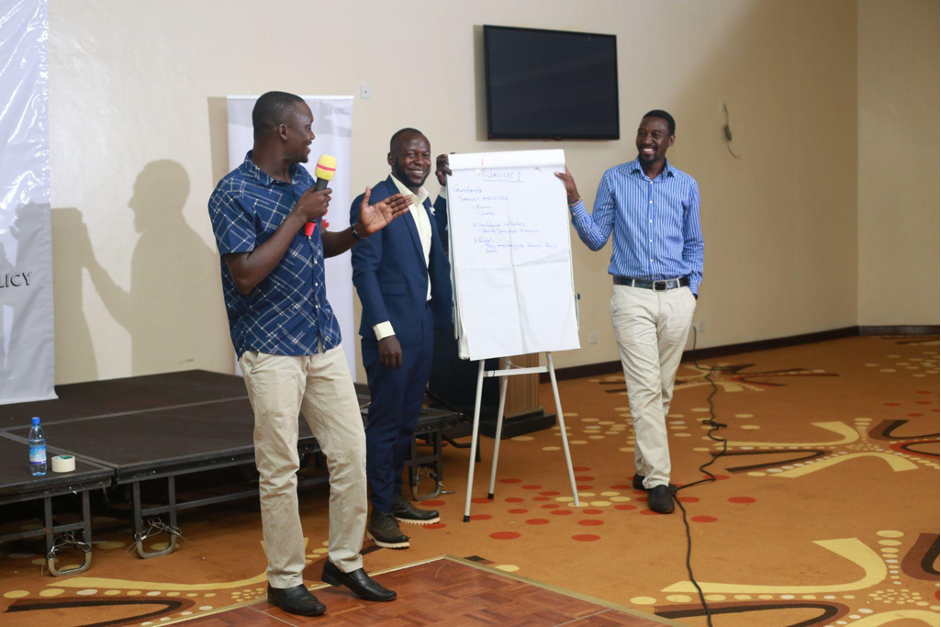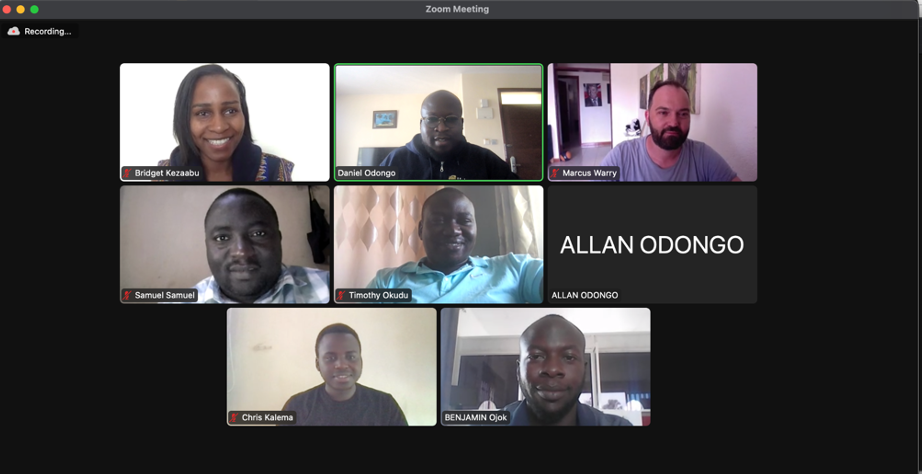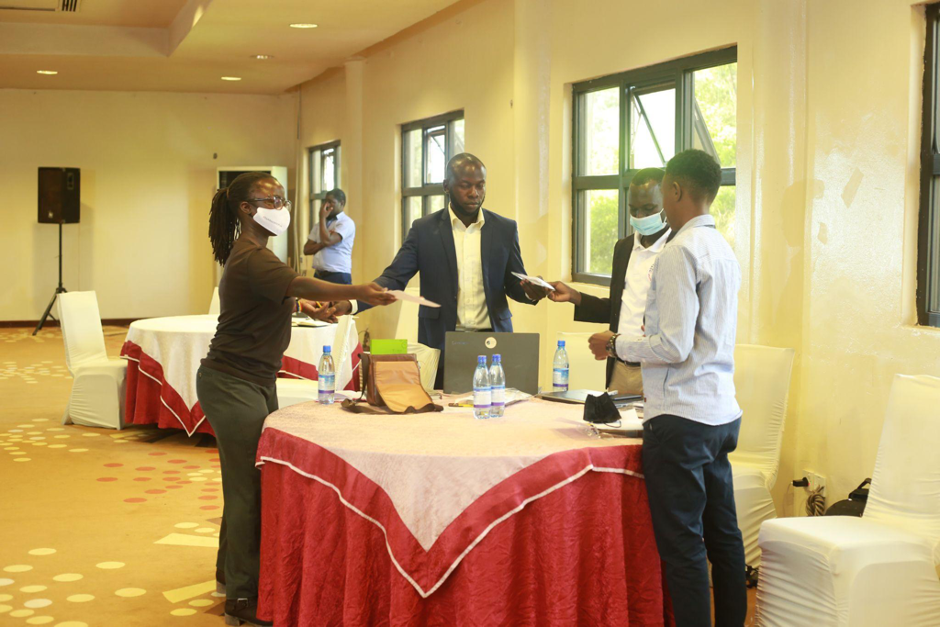To commemorate Open Data Day 2023, Amara Hub convened a co-creation session to discuss the use of Artificial Intelligence (AI) in conservation efforts in Northern Uganda. The session was attended by a diverse spectrum of participants from Uganda Wildlife Authority, Africa Wildlife Federation, Uganda Conservation Foundation, Unwanted Witness along with conservation tech enthusiasts and practitioners, who shared their insights and ideas on how to leverage AI to protect endangered species and mitigate the impact of climate change on biodiversity. This hybrid breakfast event with 20 participants was held on 9th March 2023.
The broad next steps of the co-creation session are to identify and prioritise key challenges where there is an opportunity for AI to offer solutions, build partnerships, and develop a successful pilot project that benefits both wildlife and local communities in Northern Uganda.


Through the use of hypotheses from two scenarios, the co-creation session participants assessed what artificial intelligence can practically look like for conservation, and how it can be applied in the different contexts of protected and unprotected areas.
The first scenario was on the use of machine learning algorithms to track the movement of animals and predict their behaviour. By analysing large amounts of data from GPS collars and other tracking devices, AI systems can learn to predict where animals are likely to go next, making it easier for conservationists to anticipate and prevent human-wildlife conflict. Participants explored a research piece from Elizabeth Bondi et al., SPOT poachers in action: Augmenting conservation drones with automatic detection in near real-time as a basis for discussion on this scenario.
For the second scenario, participants in the co-creation session discussed climate change and its significant impact on biodiversity, with species facing extinction due to changes in temperature, precipitation, and other environmental factors. There was general consensus that monitoring the effects of climate change on biodiversity is a challenging and time-consuming task, making it difficult to implement effective mitigation strategies. However, the use of audio and visual data might be leveraged to develop more accurate and efficient monitoring systems. There was a review of data from 2014, by F. Wanyama, P. Elkan, F. Grossmann, et al, which highlights the findings of an aerial survey of large mammals in the Kidepo Valley National Park (KVNP) and the adjacent Karenga Community Wildlife Area (KCWA) in June 2014. Data from aerial surveys were able to determine that the population of elephants had fluctuated over the years in response to human-environmental interactions.


The application of AI in wildlife conservation has the potential to revolutionise the way we protect and conserve our natural resources. With the rapid advancements in technology, there is a real opportunity to leverage AI for the benefit of wildlife conservation in Northern Uganda.
Some specific actions developed towards this are:
- Document the outcomes of the co-creation session: This detailed blog post is a crucial first step to reporting and acts as a repository for the ideas, insights, and suggestions generated during the co-creation session. This documentation can be used to inform the next stages of the project and can serve as a reference for the team and stakeholders. The presentation deck shared by Amara Hub is also available here.
- Concept note development: After the co-creation session, the logical next step is to identify the key challenges that need to be addressed to implement AI for wildlife conservation in Northern Uganda. A follow-up concept note will be drafted by Amara Hub and shared with stakeholders. This will include the challenges related to data collection, analysis, and efficient decision-making for conservation efforts in Northern Uganda, proposed community engagement models, and resources required to pilot identified solutions.
- Partnership building: Forming partnerships shall help to ensure the success of the initiative. These partnerships will include community organisations, government agencies, as well as local/international conservation organisations. To aid communication, collaboration, and knowledge-sharing a dedicated Slack channel has been created. Any like-minded individuals/organisations are open to join it here.
Amara Hub received a small grant to host Open Data Day(s) (ODD) events and activities.








